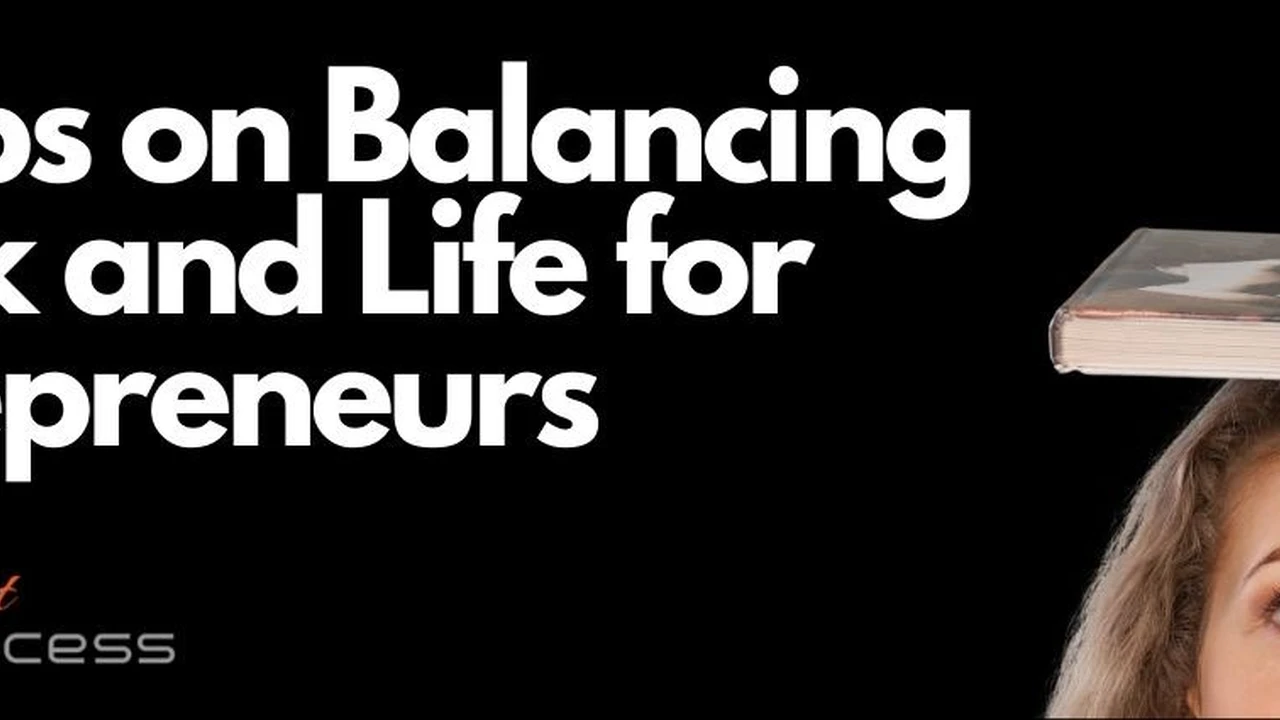5 Ways to Overcome Career Plateaus
Identify and implement five effective strategies to break through career plateaus and reignite your growth.

Identify and implement five effective strategies to break through career plateaus and reignite your growth.
5 Ways to Overcome Career Plateaus and Reignite Your Professional Growth
Hey there, ever felt like you're stuck in a professional rut? Like you're doing the same thing day in and day out, and your career just isn't moving forward? That, my friend, is what we call a career plateau. It's a super common feeling, and honestly, almost everyone experiences it at some point. But here's the good news: it's not a dead end. It's actually an opportunity for a reset, a chance to re-evaluate and reignite your professional journey. In this deep dive, we're going to explore five powerful strategies to help you not just break free from that plateau, but to launch yourself into a new phase of growth and excitement. We'll also look at some practical tools and resources that can help you along the way.
Strategy 1 Skill Up and Stay Relevant The Lifelong Learning Advantage
One of the biggest reasons people hit a career plateau is that their skills become stagnant or outdated. The world of work is constantly evolving, and if you're not evolving with it, you're going to get left behind. Think about it: new technologies emerge, industries shift, and job roles transform. What was cutting-edge five years ago might be standard, or even obsolete, today. So, the first and arguably most crucial step to overcoming a plateau is to commit to lifelong learning. This isn't just about taking a random course; it's about strategically identifying the skills that are in demand now and will be in the future, and then actively acquiring them.
Identifying In Demand Skills for Career Advancement
How do you figure out what skills to learn? Start by looking at job descriptions for roles you aspire to. What common requirements do you see? Check out industry reports and trends. Websites like LinkedIn Learning, Coursera, and Udemy often publish reports on the most in-demand skills. For example, in today's market, data analytics, artificial intelligence literacy, digital marketing, cybersecurity, and advanced project management are consistently high on the list. Even soft skills like emotional intelligence, complex problem-solving, and adaptability are becoming increasingly critical.
Top Platforms for Skill Acquisition Online Learning Resources
Once you know what you want to learn, where do you go? The internet is a treasure trove of learning resources. Here are a few top picks:
- Coursera: This platform partners with universities and companies to offer courses, specializations, and even degrees. You can find everything from Python programming to leadership and management. Many courses offer financial aid, and some even have free audit options. For example, the 'Google Data Analytics Professional Certificate' is a fantastic option for anyone looking to get into data, costing around $39-$49/month for a subscription, but offering a highly recognized credential.
- Udemy: Udemy boasts a massive library of courses taught by independent instructors. It's great for practical, hands-on skills. Prices vary widely, but they often have sales where courses can be as low as $10-$20. If you want to learn a specific software or a niche skill, Udemy is often a good bet. For instance, a 'Complete Digital Marketing Course' might cost you $15 during a sale.
- LinkedIn Learning: Formerly Lynda.com, this platform offers video courses taught by industry experts. It's particularly strong for business, creative, and tech skills. A subscription is typically around $29.99/month, but many LinkedIn Premium users get it included. It's excellent for bite-sized learning and keeping up with industry trends.
- edX: Similar to Coursera, edX offers university-level courses, often for free (audit track) or for a fee if you want a verified certificate. It's a great place for more academic or theoretical learning.
- Pluralsight: This platform is geared more towards tech professionals, offering in-depth courses on software development, IT ops, data, and cybersecurity. A personal subscription is around $29/month or $299/year.
Comparing Learning Platforms Choosing Your Best Fit
When choosing a platform, consider your learning style, budget, and the type of certification you need. Coursera and edX are great for more structured, university-backed learning. Udemy is fantastic for practical, project-based learning at a lower cost. LinkedIn Learning is excellent for quick skill boosts and professional development. Pluralsight is a go-to for serious tech upskilling. Don't be afraid to try out free trials or audit options to see what works best for you.
Strategy 2 Network Strategically Build Your Professional Tribe
You've heard it a million times: networking is important. But when you're stuck on a plateau, strategic networking becomes absolutely critical. It's not just about collecting business cards; it's about building genuine relationships with people who can offer insights, mentorship, and even open doors to new opportunities you might not even know exist. Many of the best career opportunities come through referrals, not job boards.
Effective Networking Techniques for Career Growth
Start by identifying people in roles or industries you're interested in. Reach out for informational interviews – a casual chat where you learn about their career path and industry. Attend industry events, both online and offline. Join professional associations. And don't forget your existing network: former colleagues, classmates, and even friends. Let them know you're looking to grow and explore new avenues.
Leveraging Online Platforms for Professional Connections
LinkedIn: This is your primary tool for professional networking. Optimize your profile, connect with people in your field, and engage with relevant content. Don't just send generic connection requests; personalize them. Join industry-specific groups and participate in discussions. You can use LinkedIn's 'People You May Know' feature or search for specific roles and companies. It's free to use for basic networking, but a Premium subscription (around $29.99/month) offers more insights and direct messaging capabilities.
Meetup: While not strictly career-focused, Meetup can be great for finding local professional groups, tech meetups, or even hobby groups that might lead to unexpected professional connections. It's generally free to join groups, with some events having a small fee.
Industry-Specific Forums and Communities: Depending on your field, there might be dedicated online forums or Slack communities where professionals share knowledge and opportunities. For example, if you're in tech, GitHub or Stack Overflow can be great for connecting with peers. These are usually free.
Strategy 3 Seek New Challenges and Responsibilities Expand Your Horizon
Sometimes, a plateau isn't about a lack of skills, but a lack of challenge. If you're doing the same tasks day in and day out, it's easy to feel stagnant. The solution? Actively seek out new responsibilities, even if they're outside your current job description. This could mean volunteering for a new project, taking on a leadership role in a cross-functional team, or even proposing a new initiative to your manager.
Internal Mobility and Project Opportunities
Talk to your manager about your desire for growth. Express interest in new projects, even if they seem daunting. Look for opportunities to mentor junior colleagues, which can hone your leadership and communication skills. Consider internal job postings – sometimes a lateral move within the same company can open up new avenues for growth and learning.
Side Projects and Volunteer Work for Skill Application
If your current role doesn't offer enough new challenges, create your own! A side project can be a fantastic way to apply new skills, build a portfolio, and even explore potential new career paths. This could be anything from building a website for a local non-profit, starting a blog, or even taking on a small freelance gig. Volunteer work can also provide valuable experience and networking opportunities. These activities are often free, requiring only your time and effort.
Strategy 4 Re-evaluate Your Career Path Is This Still Your Destination
A career plateau can also be a sign that you're on the wrong path entirely. Maybe the industry has changed, your passions have shifted, or your values no longer align with your current role or company. This is a tough one, but it's crucial to be honest with yourself. Is this career still fulfilling? Does it align with your long-term goals and aspirations?
Self-Assessment Tools and Career Coaching
Take time for self-reflection. What do you enjoy doing? What are you good at? What kind of impact do you want to make? Consider using self-assessment tools like personality tests (e.g., Myers-Briggs, Big Five) or career aptitude tests (e.g., Strong Interest Inventory). While these aren't definitive, they can provide insights into your preferences and strengths.
For a more structured approach, consider working with a career coach. A good coach can help you clarify your goals, identify your strengths, and develop a strategic plan for your career transition. Career coaching costs vary widely, from a few hundred dollars for a single session to several thousand for a comprehensive package. Platforms like BetterUp or Coach.me offer coaching services, with BetterUp being more corporate-focused (often employer-sponsored) and Coach.me offering more affordable, individual coaching sessions (starting from $20-$50/session).
Exploring New Industries and Roles Career Transition Strategies
If you decide a career change is in order, start by researching new industries and roles. Talk to people who work in those fields. Look for transferable skills – skills you already possess that can be applied in a new context. Don't be afraid to start small, perhaps with a part-time role or a volunteer position, to test the waters before making a full leap. This might involve taking a pay cut initially, but the long-term satisfaction and growth can be well worth it.
Strategy 5 Prioritize Well-being and Resilience Your Foundation for Growth
Finally, and perhaps most importantly, you can't effectively overcome a career plateau if you're burnt out, stressed, or neglecting your well-being. A plateau can be mentally taxing, leading to frustration and self-doubt. Prioritizing your physical and mental health isn't a luxury; it's a necessity for sustained professional growth.
Mindfulness and Stress Management Techniques
Incorporate mindfulness practices into your daily routine. This could be as simple as taking a few minutes to meditate, practicing deep breathing exercises, or going for a mindful walk. Apps like Calm and Headspace offer guided meditations and sleep stories. Calm offers a free trial, then typically costs around $69.99/year. Headspace is similar, with a free trial and a subscription around $69.99/year. Both are excellent for reducing stress and improving focus.
Maintaining Work Life Balance and Preventing Burnout
Set clear boundaries between work and personal life. Avoid checking emails after hours or on weekends. Make time for hobbies, exercise, and spending time with loved ones. Ensure you're getting enough sleep and eating nutritious meals. If you're feeling overwhelmed, don't hesitate to seek support from friends, family, or a mental health professional. Remember, a well-rested, healthy you is a more productive and resilient you, ready to tackle any career challenge that comes your way.
Breaking through a career plateau isn't always easy, but it's absolutely achievable. By strategically upskilling, networking, seeking new challenges, re-evaluating your path, and prioritizing your well-being, you can transform a period of stagnation into a powerful springboard for future success. So, take a deep breath, pick one of these strategies to start with, and get ready to reignite your professional journey!
:max_bytes(150000):strip_icc()/277019-baked-pork-chops-with-cream-of-mushroom-soup-DDMFS-beauty-4x3-BG-7505-5762b731cf30447d9cbbbbbf387beafa.jpg)





